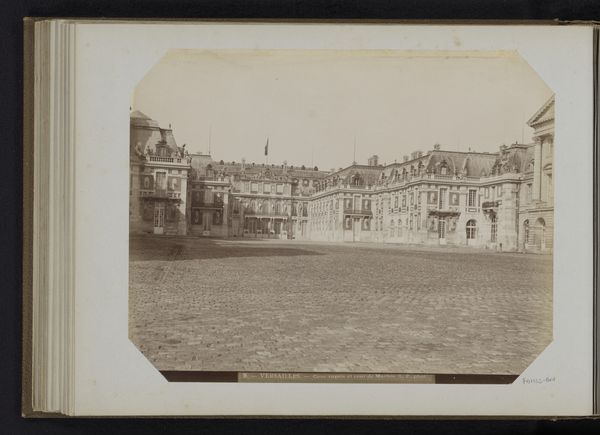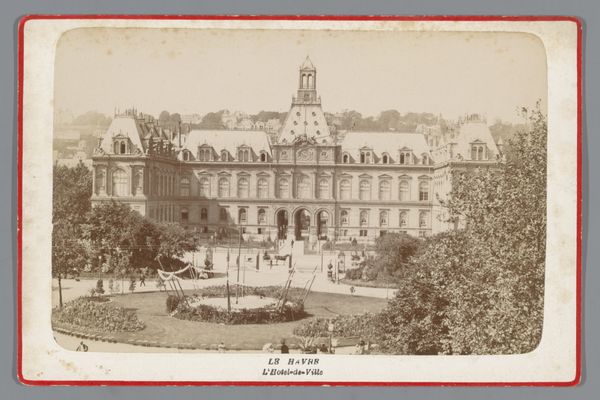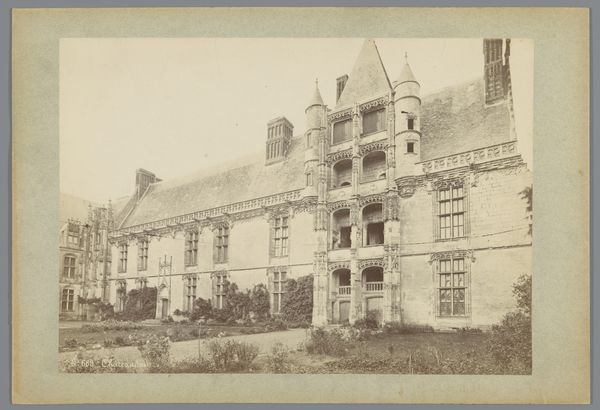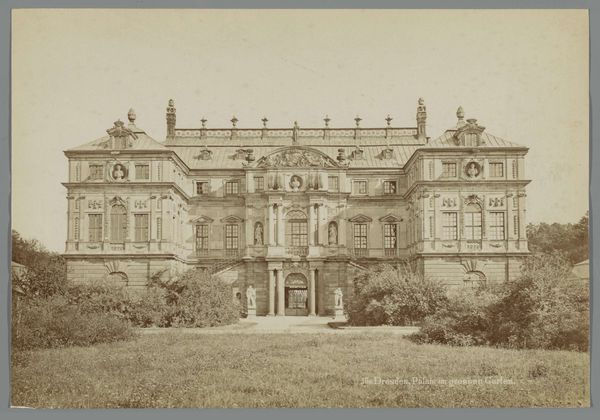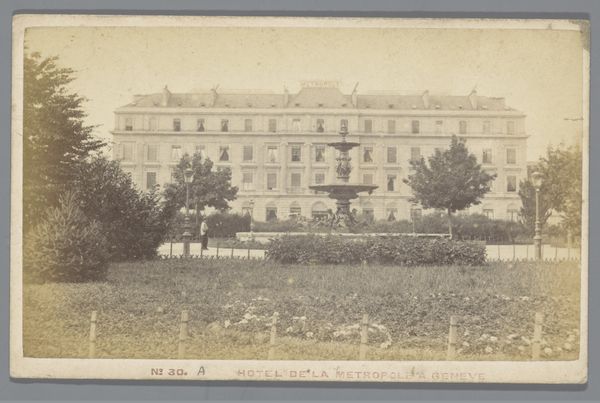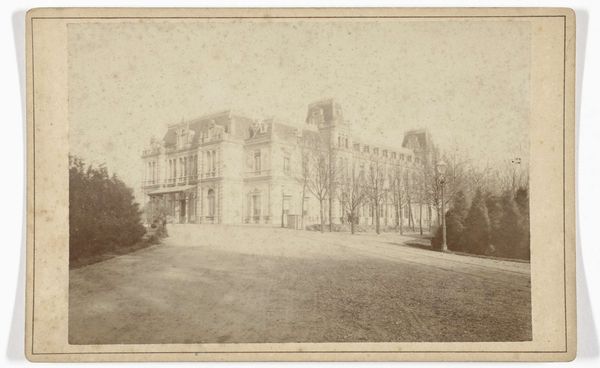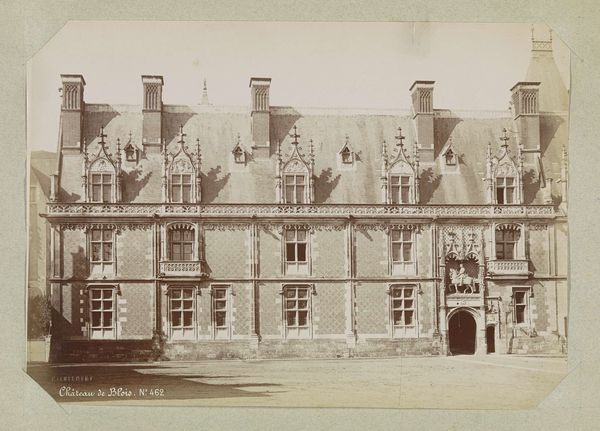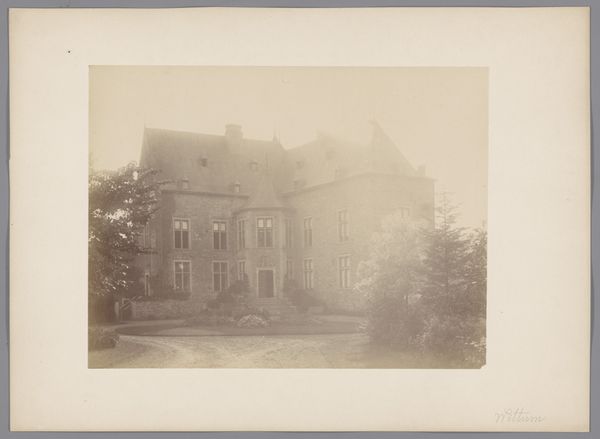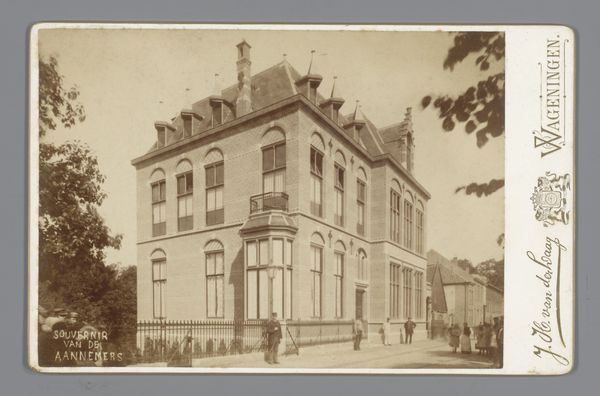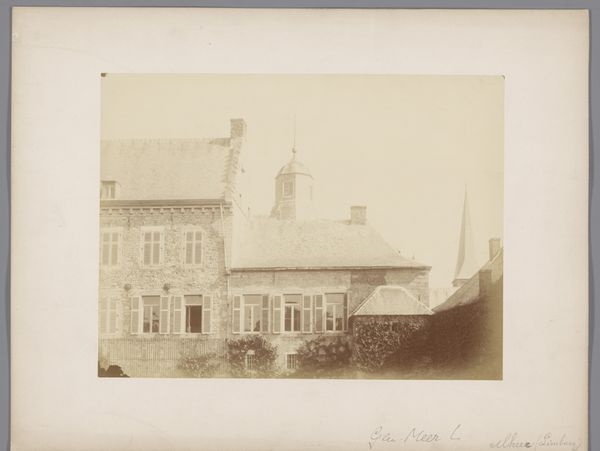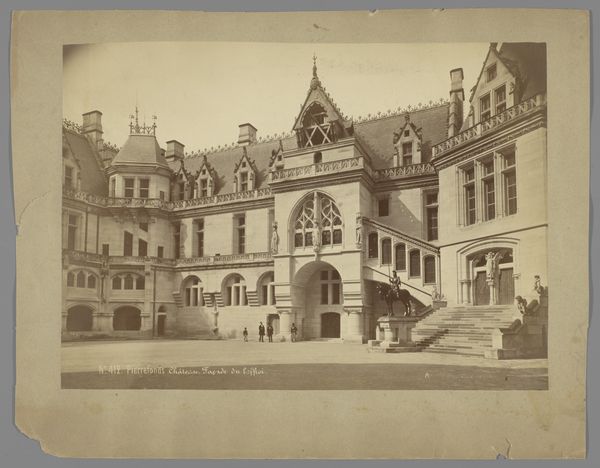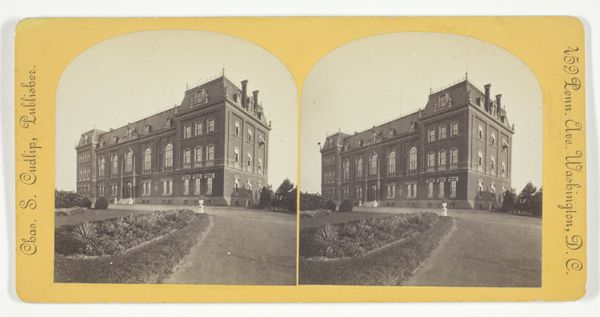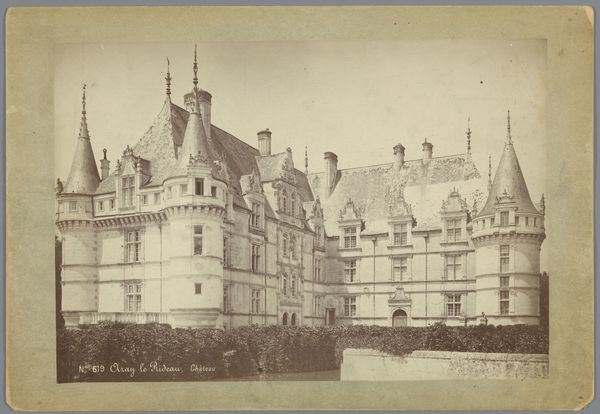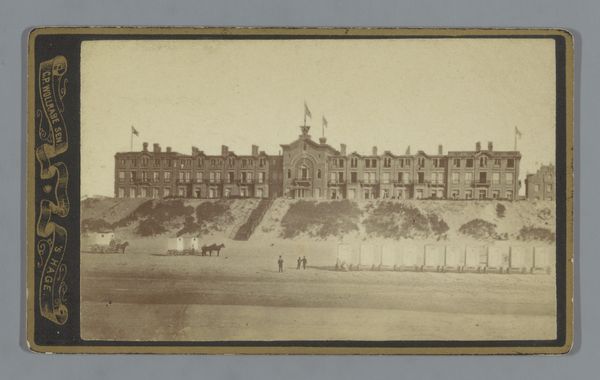
photography, site-specific, albumen-print
#
photography
#
site-specific
#
cityscape
#
albumen-print
#
realism
Dimensions: height 63 mm, width 105 mm
Copyright: Rijks Museum: Open Domain
This photograph of the Hôtel de préfecture du Morbihan in Vannes, was taken by Ferdinand Carlier. It is a relatively early photographic print, most likely using the albumen process, where paper is coated with egg white and silver nitrate to create a light-sensitive surface. The making of albumen prints involved a complex, multi-step process, demanding skill and precision. From coating the paper to developing the image, each stage required expertise. As photography became more widespread, this kind of labour was increasingly divided, with specialized studios handling different aspects of the production. This division of labor reflects broader shifts in industry and work in the 19th century. The sepia tones and soft focus of the image are characteristic of the time, creating an aesthetic that many found pleasing. But beyond its aesthetic appeal, this photograph serves as a reminder of the intricate processes and skilled labor that went into producing even the simplest of images in the past. Recognizing the labour and industrial processes that underpin photographs, enriches our understanding of how photography has shaped our world.
Comments
No comments
Be the first to comment and join the conversation on the ultimate creative platform.
